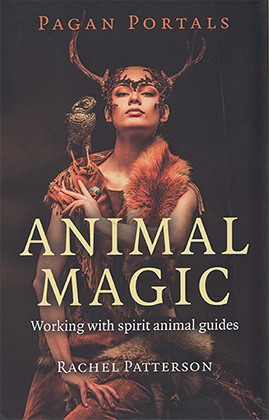
To their credit, Akerlof and Shiller do discuss how motives not normally regarded as economic have contributed to China’s growth. They don’t appear to realise that the assumption https://www.youtube.com/results?search_query=%D1%82%D0%BE%D1%80%D0%B3%D0%BE%D0%B2%D0%B0%D1%8F+%D0%BF%D0%BB%D0%B0%D1%82%D1%84%D0%BE%D1%80%D0%BC%D0%B0 of a categorical distinction between ‘economic’ and ‘non-economic’ motives is one of the chief reasons recent economic theory has been so consistently remote from reality.

Individual decisions about savings, investments, purchases and trust, whether we choose to buy land or a car, or even trust the government’s provision of pensions and public services, all are influenced by certain levels of unpredictability. This book attempts to bring to economics what Franz Kafka, Robert Musil and Hermann Broch brought to literature – the reign of uncertainty and the overthrow https://www.google.com/search?biw=1434&bih=742&ei=7_kMXvXbNeOBk74Ptba66Aw&q=What+is+bookkeeping&oq=What+is+bookkeeping&gs_l=psy-ab.3..0l10.63907.63907..64217…0.2..0.70.70.1……0….2j1..gws-wiz…….0i71.ABt8ohtXgLs&ved=0ahUKEwi1j_KFmOPmAhXjwMQBHTWbDs04ChDh1QMICg&uact=5 of structures of values (Kundera, 2003). Bounded rationality was the first step in the recognition that the reasonable is distinct in many cases from the rational, and both are usually different from ‘actual’ choice. Keynes and the classical economists before him knew that there is no realm of market exchange that obeys laws of the kind that can be formulated in the natural sciences.
Animal Spirits: How Human Psychology Drives the Economy, and Why It Matters for Global Capitalism –…
As Akerlof and Shiller see it, “Great leaders are first and foremost tellers of stories”. The book comes in two parts – https://forexarena.net/ part one is about the various ‘animal spirits’ that direct the ways in which we think about and act within the economy.
Addressing this wrong, the authors attempt to restore animal spirits to economic theory. They do this by drawing on the greater understanding of human psychology that exists today, and which Akerlof and Shiller, along with other economists, have incorporated into the relatively new field of behavioral economics. He also introduced the world to “animal spirits,” coining that phrase to describe a range of emotions, human impulses, enthusiasms and misperceptions that drive economies — and ultimately unwind them.
Animal Spirits (book)
Economics and politics are not separate branches of human activity, and economic life cannot be studied independently of social divisions and political conflicts among populations, along with their cultures and religions. Familiar to Keynes and most of the economists of his generation, these truisms have been forgotten, or rejected, by many economists today. The result is an economic imperialism that tries to explain every human activity in terms of a conception of rational action that does not work even when applied to the behaviour of markets.
- This creates the opportunity for individuals and corporations to sell modern-day versions of snake oil, meaning products or services that advertise that they can do something that they actually cannot.
- There are at least three sources of feedback from asset markets to the real economy.
- That every bubble that has ever existed has eventually popped is not proof that this one will have to pop, of course, but I still wouldn’t ‘bet my house on it’ so to speak.
Such an idea is so stupid it is surprising it was ever accepted as the basis of any subject that seeks to describe itself as a ‘science’. The idea that unemployment is working people taking a kind of holiday is equally laughable, even if it does mean that believing such allows right-wing types can feel justified in cutting unemployment benefits from people so as to give them an incentive to find a job.
They also failed to follow their “animal spirits” idea to its logical conclusion, that the unpredictable nature of human behavior severely limits the utility of economics as a science. They seem to imply that, given more study, https://www.bing.com/search?q=%D1%84%D0%BE%D1%80%D0%B5%D0%BA%D1%81+crm&qs=n&form=QBRE&sp=-1&pq=%D1%84%D0%BE%D1%80%D0%B5%D0%BA%D1%81+crm&sc=0-10&sk=&cvid=A2F52D69B5F140AAA16C6C38DE17B478 “animal spirits” could be understood and incorporated into economic formulas and models. This idea seems to fly in the face of the “illogical nature of animal spirits” thesis that the book spends so much effort explaining.

Trivia About Animal Spirits: H…
In The General Theory, John Maynard Keynes wrote that the switches between optimism and pessimism which drive rises/falls in investment spending which, in turn, cause rises/falls in output, were driven by ‘”animal spirits”. This was always one of the weaker points of Keynes’ analysis, essentially a big shrug of the shoulders, removing any notion of economic actors rational responses to changing circumstances. People are crazy, so the authors say, their behaviour is irrational and, in the Keynesian way, this can cause economies to crash and stay crashed. Only the wise hand of government on economic the tiller can save us.
Yet, while analyzing such a manifesto, there is a need to clearly define and distinguish between the foundations – what makes an action non-economic, and what is irrational? Could one consider the opposition of economic and non-economic in similar fashion to that of the political and the apolitical? https://forexarena.net/stock-market-crashes-predictable-and-unpredictable-and-what-to-do-about-them/ If so, in a world where every action and every personal decision is political, could we, in a capitalist environment, make an argument that no action is ever non-economic? Ultimately, say Akerlof and Shiller, that Animal Spirits is an attempt to map the economy as a whole – both personal and public.
Book review: animal spirits: how human psychology drives the economy and why it matters for global c…
Like Keynes, Akerlof and Shiller know that managing these animal spirits requires the steady hand of government – simply allowing markets to work won’t do it. Like Keynes, Akerlof and Shiller know that managing these animal spirits requires the steady hand of government — simply allowing markets to work won’t do it. I think it will age rather well as both a narrative of the financial method Gann square of nine crisis and as a sort of manifesto of what the “New Keynesian” approach to macroeconomics is all about, but it’s not as rigorous as I’d expected. I’m also still not quite sure what’s to be done to keep our “animal spirits” in check. It read more like a list of examples of irrational behavior in history, but Kindleberger and other books already treat the topic quite well.

Then, along came Milton Friedman in the 1970’s, in the midst of the raging inflation of that decade. With his stress on bringing down inflation by controlling the money supply, and allowing markets to operate freely, and his assertion that “government was the problem”, Keynesianism took a back seat. Ronald Reagan and his acolytes took Friedman’s view, added a dose of supply-side “voodoo economics” – cut taxes and deficits will somehow disappear! At least, he became the hero after the US got over its painful recession in . Reagan was a master story-teller and his story became the dominant story.


